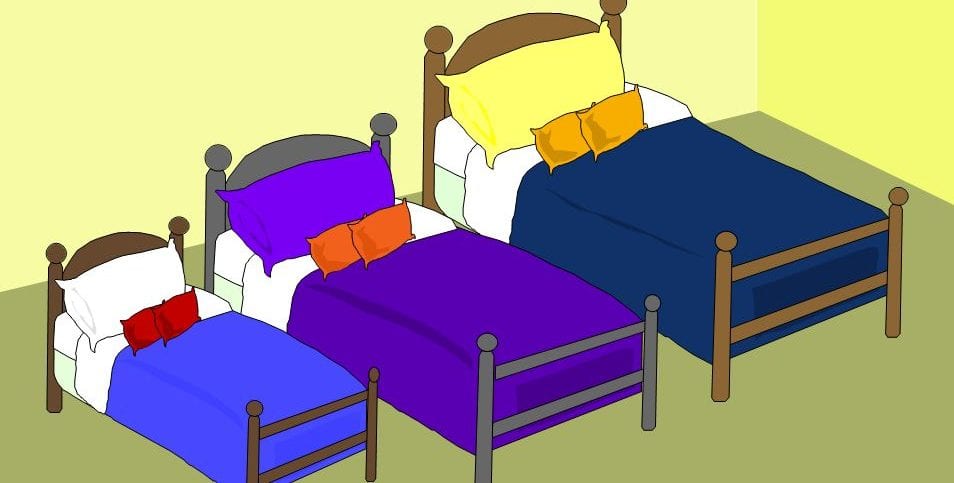By Daniel Dunaief

When my daughter drives to a crosswalk and a pedestrian is crossing, she feels terrible if the person on foot starts to jog or sprint, pushing him or herself to move more quickly so my daughter can continue on her way.
My daughter also gets annoyed if the person suddenly slows down.
Life is full of those “just right” moments. If our hot chocolate is too hot, we risk burning the roofs of our mouths. If it’s too cold, it doesn’t have the desired effect of warming us up.
It’s what makes the Goldilocks story so relatable. The father’s bed is too hard, the mother’s is too soft, but the baby’s bed is just right.
When my family searched for new beds, we collapsed into one mattress after another, imagining a good night’s sleep, just the right book or a good movie with perfectly balanced sound.
Most salespeople spend their careers trying to find the right fit for someone, whether it’s a shoe, bed, car, house or any of the myriad items that fill my email box overnight while I sleep.
Life involves the constant search for just right. If we won every game we played, the competition wouldn’t be strong enough and we wouldn’t push ourselves to get better. A movie with absolutely no adversity can be charming, but it can also wear thin quickly, as the lack of suspense can lead us to wonder whether a dystopian conflict is pending.
Even in the world of friendships, we search for just-right friends. We generally don’t seek friends who want to talk to us all the time, or who can barely make time for us. We also don’t want friends who agree with everything we say. A few people, public figures and otherwise, seem eager to find people who reinforce their brilliance regularly. I would prefer to find people with viewpoints that differ from my own, which force me to defend my ideas and allow me incorporate new perspectives into my thinking or behavioral patterns.
Just right for any one person can and often is different from just right for someone else, which enhances the notion that we can find someone who is a great match or complement for us.
Ideally, the non-just-right shoes, weather, girlfriends, boyfriends or jobs teach us more about ourselves. Why, we wonder, didn’t that work? Once we figure that out, we have a better chance at understanding what does.
Sometimes, like the bed that doesn’t feel comfortable at first but eventually becomes the only one that affords us a quality sleep, we grow into a role and find that the previous tasks or conversations, which had seemed so odious initially, are a much better fit than we originally thought, as a result of the changes in ourselves.
And, as Shakespeare wrote in Hamlet, “There’s the rub.” The pursuit of just right in any context can change as we age. Our high school tastes in music, clothing, cars, houses, jobs or any other choices can and do change with each landmark reunion, making it more difficult to know what we want or what we’re searching for.
While I share my daughter’s guilt when a pedestrian rushes across the crosswalk to let me go or prevents me from running down that person, I’m not as frustrated by someone who slows down. I try to determine, watching that person pause in the middle of the street, how this might be a “just right” moment for the pedestrian.







